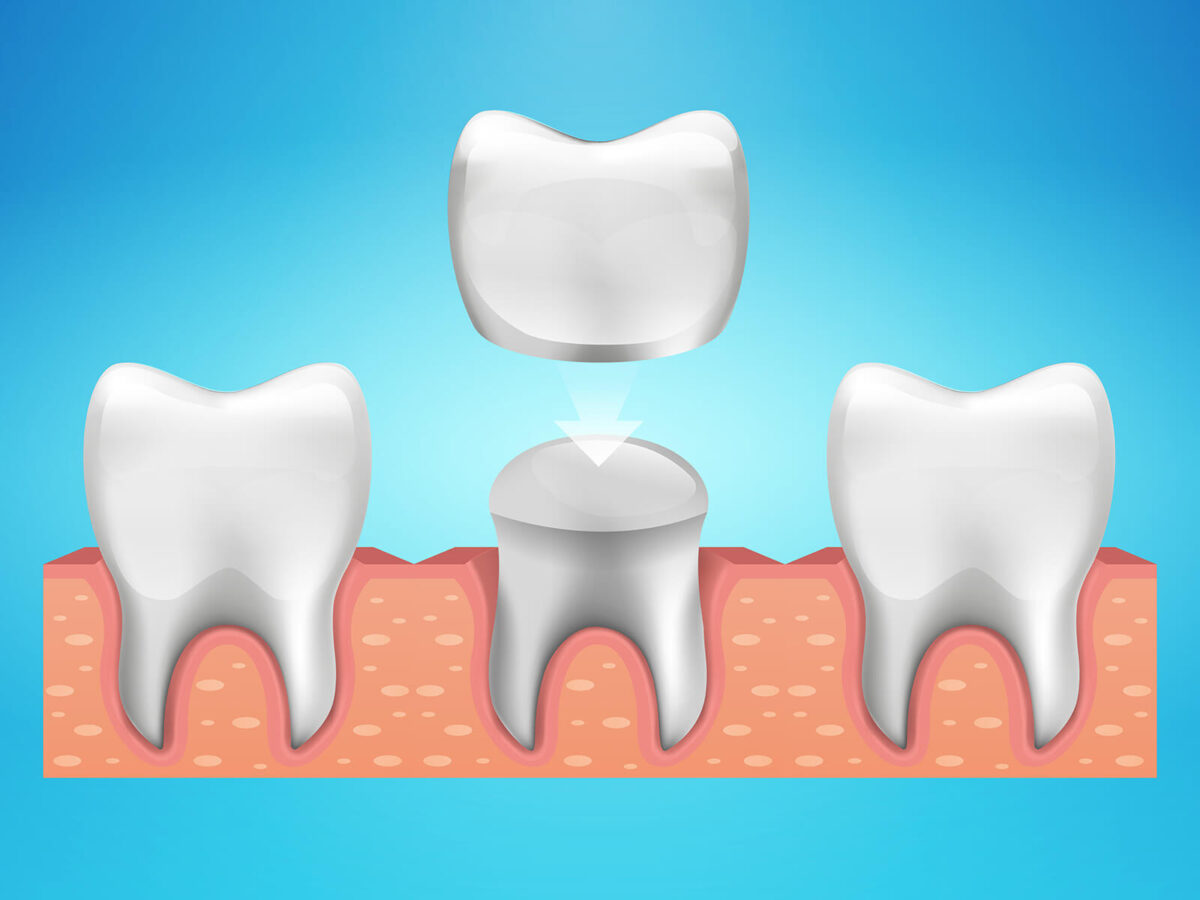Blog
Dental hygiene tips for healthy teeth & gums

When A Dental Crown May Need To Be Replaced
Dental crowns, commonly known as caps, are considered important prosthetic devices in dentistry. These remedial prosthetic bodies cover a decayed or damaged tooth and give it an appropriate shape, size, strength, and aesthetics. Even though crowns are created to last, there is always a time they will require replacement. It is critical to know this because knowing when and why dental crowns must be replaced saves time when the need arises. In today’s blog, we will discuss symptoms that suggest that the patient needs a new crown, the drawbacks of neglecting a dental crown replacement, and the advantages of timely treatment.
Why Do Crowns Need To Be Replaced?
Dental crowns may require replacement after some time for various reasons, but most commonly, it is due to wear and tear.
A chipped, cracked, or broken crown is as much a problem as a chipped, cracked, or broken tooth, and a delay in seeking the services of an orthodontist will only escalate the dental health problem to a more cumbersome one.
Damaged or cracked crowns also reveal the remaining portion of the natural tooth to bacteria that may lead to decay, which ends up negating the reason for the crown – which is to shield the remaining portion of your natural tooth.
Another common reason that people have their dental crowns replaced is due to a problem with gum shrinkage.
Signs That Your Dental Crown Needs a Replacement
1. Visible Wear and Tear
The most apparent reason for replacing a crown is when one discovers that it is worn out. Crowns are not immune to wear and tear and can fade, chip, crack, or wear out over time. Caring for a crown requires a lot of attentiveness. Thus, visit Winnie Dentist if you realize a problem with your crown. It is also possible to have small chips or cracks down to the pulp that may weaken the crown and the tooth it covers.
2. Dental Caries beneath the Crown
Cavities are also possible for a crowned tooth, irrespective of the presence of the dental crown, if there remains a margin of the denture just below the gum line.
This decay can go undetected for a long time and may only present symptoms such as pain or sensitivity when the decay is quite advanced. It is very important to visit your dentist regularly to have your teeth checked to ensure there are no signs of decay yet.
3. Gum Recession
The gums recede or shrink, uncovering the part of the dental crown and the tooth beneath. This places them at risk of sensitivity to more decay and would mean their teeth are not appealing to look at. One early sign that it is time to replace your dental crown is when you begin to experience receding gums.
4. Discomfort or Pain
The dental crown fitted correctly should not have any elements that cause the patient to complain of soreness. If a crowned tooth causes some discomfort or sensitivity, it may mean that the crown has become slightly ill-fitting or there is a new problem, such as a cavity or an infection.
5. Your Crown Is No Longer Nice To Behold
Your crown may look old after some time compared to other restorations that have been made recently. Besides, with time, your teeth’ color may change, making the crown stand out from other teeth.
Dental crowns, especially the metal ones, will have a rather lasting impact on your smile. They are no longer popular because they can stain your teeth.
They can compromise your access to proper medical treatment, including MRI scans. The dental crown needs to match your teeth; hence, replacement is needed.
What Happens if You Ignore a Dental Crown that is failing?
1. Tooth Decay:
In case a crown gets displaced or deteriorates, there is a high possibility that bacteria will penetrate. This will further complicate the state of the remaining natural teeth and prompt additional work to be done.
2. Infection:
This can make the adjacent teeth vulnerable to bacteria attacks that may lead to infection and spread to the other parts of the mouth.
3. Damage to Adjacent Teeth:
It is also hazardous to have a loose or broken crown because it can allow a neighboring tooth to suffer additional harm.
4. Pain and Discomfort:
Eating and drinking cold or hot foods and beverages are also uncomfortable if the crown has been damaged.
5. Loss of the Tooth:
Neglecting to replace a damaged crown could lead to extraction of the affected tooth.
6. Cosmetic Issues:
Chipped or stained crowns affect the aesthetic look of the teeth and the smile.
If you experience any of these signs, you must consult your dentist so that he can remove the crown before it fails again. A timely replacement of the crowns can prevent such complications, and this will help improve oral health.
Ways on How to Preserve Your Fitted Dental Crown
First, it is necessary to comprehend that although dental crowns are strong, they are not immortal and can be damaged. It simply means that, like any other teeth, they can also undergo wear and tear. But, if you give proper care and attention, you can considerably increase a dental crown’s life.
1. Maintain Good Oral Hygiene Habits:
A fundamental procedure of any dental hygiene regimen. An antiseptic mouthwash, flossing, and brushing your teeth reduce your mouth’s bacterial count, which may cause tooth decay and gum diseases.
2. Avoid Hard Foods and Non-Food Items:
Crunchy food or objects such as ice or candy are prohibited since they can easily harm the crown. Chewing nails or using your teeth to open packs is an undue pressure on the crown that isn’t necessary.
3. Regular Dental Check-ups:
You must visit your dentist periodically to ensure that your crown’s condition and the tooth underneath are stable and that no other complications are developing.
4. Protect Your Teeth:
If you are a night grinder, use a mouth guard to protect the crown and other teeth from excessive grinding forces. Likewise, a mouthguard effectively protects the teeth from any form of shock resulting from contact sports.
5. Healthy Lifestyle:
A diet free of too much sugar-rich calcium will improve the strength of teeth and gum. Tobacco products and alcohol should also be avoided to improve the quality of oral health.
Summing It Up
Not replacing your crown on time exposes you to other dangers, such as tooth decay, gum infection, and damage to the entire tooth structure. Early dental crown replacement presents various advantages concerning oral health, looks, and comfort. Visiting Winnie Dentist for follow-up examinations and practicing good oral hygiene is advisable to prolong the crown’s lifespan and oral health.


